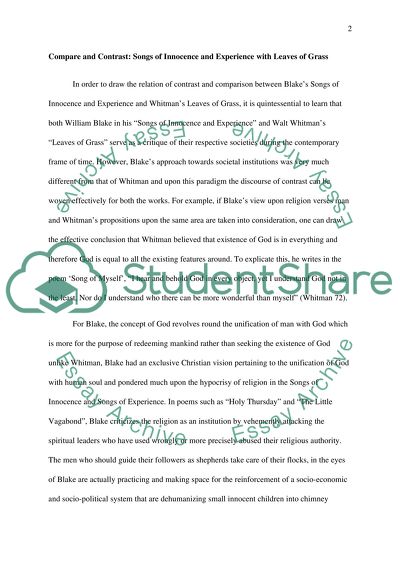Cite this document
(“Blakes Songs of Innocence and Songs of Experience with Walt Whitmans Essay”, n.d.)
Retrieved from https://studentshare.org/english/1483944-blakes-songs-of-innocence-and-songs-of-experience-with-walt-whitmans-leaves-of-grass
Retrieved from https://studentshare.org/english/1483944-blakes-songs-of-innocence-and-songs-of-experience-with-walt-whitmans-leaves-of-grass
(Blakes Songs of Innocence and Songs of Experience With Walt Whitmans Essay)
https://studentshare.org/english/1483944-blakes-songs-of-innocence-and-songs-of-experience-with-walt-whitmans-leaves-of-grass.
https://studentshare.org/english/1483944-blakes-songs-of-innocence-and-songs-of-experience-with-walt-whitmans-leaves-of-grass.
“Blakes Songs of Innocence and Songs of Experience With Walt Whitmans Essay”, n.d. https://studentshare.org/english/1483944-blakes-songs-of-innocence-and-songs-of-experience-with-walt-whitmans-leaves-of-grass.


